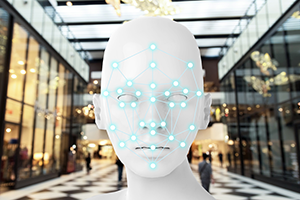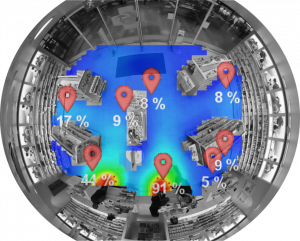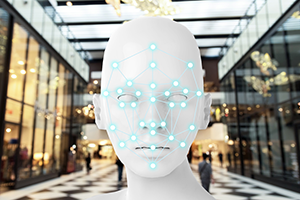 Over the years Omni-channel, Big Data, Mobile First and many other retail trends had their fair share in the spotlight. Retailers have implemented new strategies to stay relevant for their customers.
Over the years Omni-channel, Big Data, Mobile First and many other retail trends had their fair share in the spotlight. Retailers have implemented new strategies to stay relevant for their customers.
They tirelessly invested in finding more about their customers and what shapes their buying decisions, so they gathered as much data as they can. Now it’s time for them to analyze this data to use insight as a service. With the help of rising artificial intelligence technology it becomes easier than ever to understand customer needs.
What is AI?
 There are many sub-sets and definitions of AI. Machine Learning, Deep Learning, Neural Networks and Cognitive Computing are all sub-sets of this technology.
There are many sub-sets and definitions of AI. Machine Learning, Deep Learning, Neural Networks and Cognitive Computing are all sub-sets of this technology.
Yet, may be the most understandable explanation of AI comes from Baidu’s Chief Scientist, Andrew Ng. During a speech titled “Artificial Intelligence is the New Electricity”, Ng suggests that with AI, we are able to automate anything a typical human can do by thinking for a second.
In the company’s Predictions 2017: Artificial Intelligence Will Drive the Insights Revolution report, Forrester principal analyst James McCormick says, “AI will provide business users with access to powerful insights before they are available to them, through the use of cognitive interfaces in complex systems, advanced analytics and machine learning technology.”
Artificial Intelligence basically is supervised learning which drives from data. Data becomes where the value is created and it is the most important and ‘hard to achieve’ part of the equation. Once retailers have the data to feed the algorithms, they will be able to get closer to their customers by offering better assortments.
What does AI mean for retailers?
 In January 2017, during a panel discussion in Davos, Alibaba Group CEO Daniel Zhang said, “Data technology today is so far mainly on the sell side. Looking ahead, the technology will change more on the supply side, because we can get real-time customer and sales data so manufacturers can react to specific demand at the right occasions. We talk about the Fourth Industrial Revolution, the IoT (Internet of Things), all of these things are based on data. As long as we have the data, we can change the entire business.”
In January 2017, during a panel discussion in Davos, Alibaba Group CEO Daniel Zhang said, “Data technology today is so far mainly on the sell side. Looking ahead, the technology will change more on the supply side, because we can get real-time customer and sales data so manufacturers can react to specific demand at the right occasions. We talk about the Fourth Industrial Revolution, the IoT (Internet of Things), all of these things are based on data. As long as we have the data, we can change the entire business.”
Fundamentals of decision making changes with AI, both for the customers and the businesses. AI can understand customer needs with deep learning models using the data.
It takes 2 to 6 minutes for a customer to go through all the filters to find the product they are looking for online. Whereas with AI, they can point to the product easily and tell the algorithm that they want something “just like this”. In e-commerce, AI is equivalent of what a sales representative can offer to a customer in store.
However, even if the online shopping grows exponentially, only 3% of users buy what they add to their baskets. Thanks to our sales staff’s ability to customize offerings for each shopper, in-store conversion rates are between 25-40%.
Nowadays many customers start their journey online and make the purchase at a brick and mortar shop. Studies show that when customers go through more steps while shopping they tend to make more price centered decisions. Whereas finding what they are looking for quicker is the most important aspect of shopping.
Customers expect better and more personalized suggestions and they expect it fast. AI not only closes the gap between what experiences brands offer and what customers wants to see but also does it at scale. It can be implemented in omni-commerce, marketing, merchandising and supply chain. It constructs customer choice models that increases in-store revenues and competitive price intelligence models that recommends dynamic pricing models for retailers.
Customer Behavior and Insight Driven Retail Experiences
 Data is everywhere. By implementing people counting, queue management and heatmap systems in stores as V-Count offers, it is easier more than ever to gather customer data.
Data is everywhere. By implementing people counting, queue management and heatmap systems in stores as V-Count offers, it is easier more than ever to gather customer data.
Nevertheless, it is more important to analyze this data and predict customer behaviors. AI learns from past behavior and guides retailers to come up with better offerings for their customers. As current VP of Intelligent Commerce, Sentinent and previous Executive Director of Product Strategy at IBM Watson, Andy Narayanan put it, “The future of AI in retail are systems that understand intent and context.”
One search of white sneakers is two different things for two different people based on what they are looking for and when they are looking for. It is not even the same thing for the same person when they search white sneakers after a month. Context changes in each shopping scenario and it is a fundamental insight that AI can offer us.
Operational intelligence, financial intelligence and customer intelligence can all be achieved by using AI. Through customer insight driven model, AI drives omni-channel profitability for retailers across the globe. A recent Walker study suggests that by the year 2020, customer experience will surpass price and product as the key brand differentiator.
What the Future Holds
Global retail spending can be on the rise annually but customer decisions change quicker and AI models can help retailers stay on top of all changing trends. Therefore, retailers’ AI investment is expected to be tripled by the end of the year.
IDC (International Data Corporation) predicts that by 2019, AI will change how 25% of merchants, marketers, planners and store operations personnel work in the US. It will improve productivity by 30% and results up to 20%. Greg Girard, IDC Program Director- Worldwide Omni-Channel Retail Analytics Strategies, suggests that by embedding machine learning we will be able to get the decision making into systems themselves so they become self-correcting. Girard says, “It might be expensive and it might seem risky [at this point]. However, data driven culture for better customer service is the biggest decision to be made. And AI is the mechanism that will help you make sense of your data [and make that decision].
Prominent research and advisory company Gartner predicts that by 2020, 85% of customer interactions will be managed by AI.






